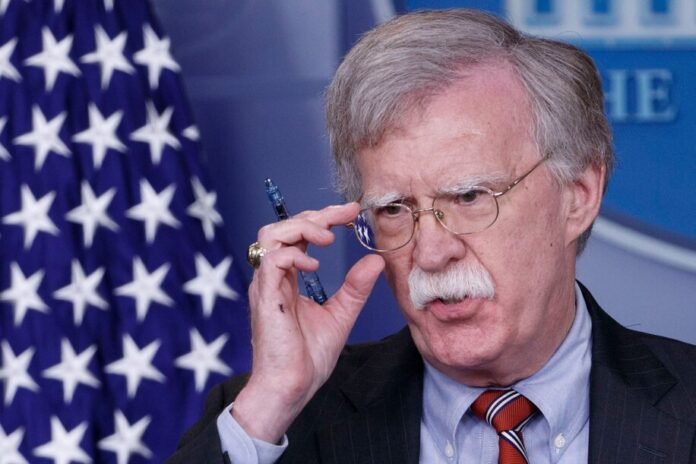Former National Security Advisor John Bolton has sparked controversy with his recent call for the Biden administration to take direct military action against Iran, arguing that such strikes are necessary to “send more messages” to Tehran. Bolton’s provocative proposal has reignited debates about U.S. foreign policy in the Middle East and the potential consequences of escalating tensions with Iran.
In a recent interview, Bolton expressed his frustration with the Biden administration’s approach to Iran, criticizing what he perceives as a lack of decisive action in response to Iran’s alleged support for terrorism and pursuit of nuclear weapons. Bolton argued that targeted military strikes against Iranian facilities would demonstrate American resolve and deter further aggression from Tehran.
Bolton’s call for direct military action against Iran has drawn mixed reactions from policymakers, analysts, and the public. While some view his proposal as a bold and necessary step to confront Iran’s destabilizing activities in the region, others have raised concerns about the potential for unintended consequences and the risk of sparking a broader conflict in the Middle East.
Critics of Bolton’s proposal argue that military strikes against Iran could escalate tensions and trigger a dangerous cycle of retaliation, leading to widespread violence and instability in the region. They caution that such actions could undermine diplomatic efforts to address Iran’s nuclear program and exacerbate existing conflicts in countries like Iraq, Syria, and Yemen.
Moreover, opponents of Bolton’s approach question the efficacy of military strikes in achieving long-term strategic objectives, arguing that they are unlikely to compel Iran to change its behavior or abandon its pursuit of nuclear weapons. They emphasize the need for a comprehensive and nuanced approach to addressing Iran’s regional ambitions, one that combines diplomatic engagement, economic pressure, and multilateral cooperation.
In response to Bolton’s proposal, the Biden administration has reiterated its commitment to pursuing a diplomatic solution to the Iran nuclear issue, while also expressing readiness to defend U.S. interests and allies in the region. Administration officials have emphasized the importance of maintaining open channels of communication with Iran and engaging in constructive dialogue to address mutual concerns.
The debate over Bolton’s proposal comes at a critical juncture in U.S.-Iran relations, as the Biden administration seeks to revive the 2015 Iran nuclear deal, formally known as the Joint Comprehensive Plan of Action (JCPOA). The JCPOA, negotiated during the Obama administration, aimed to curb Iran’s nuclear program in exchange for sanctions relief, but was abandoned by the Trump administration in 2018.
Since taking office, President Biden has expressed his willingness to rejoin the JCPOA and engage in negotiations with Iran to address its nuclear activities. However, progress has been slow, with both sides expressing skepticism and distrust towards each other’s intentions.
Against this backdrop, Bolton’s proposal has injected a new dimension into the debate over U.S. policy towards Iran, highlighting the deep divisions within American political circles over how best to address the Iranian threat. While some advocate for a more confrontational approach, others favor a more diplomatic and pragmatic strategy that prioritizes dialogue and engagement.
In addition, John Bolton’s call for the Biden administration to consider direct military strikes against Iran represents a provocative proposal that has reignited debates about U.S. foreign policy in the Middle East. While some view Bolton’s approach as a necessary response to Iran’s destabilizing activities, others warn of the potential consequences of escalating tensions and the risk of sparking a broader conflict in the region. As the Biden administration navigates the complex challenges posed by Iran, it must carefully weigh the costs and benefits of different policy options and strive to achieve a balance between deterrence, diplomacy, and dialogue. Only through a comprehensive and nuanced approach can the United States effectively address the Iranian threat and advance its strategic interests in the Middle East.

